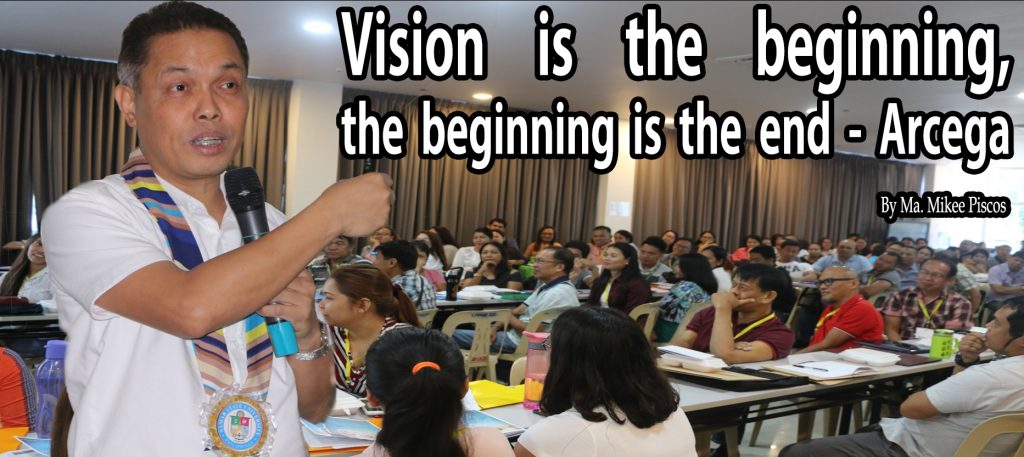
Dr. Arcega’s talk on Revolutionizing Philippine Higher Education, followed by Prof. Forster’s discussion on Blended Learning/ E-Learning in the 21st Century Classroom were both timely and relevant as reflected in some of the faculty-participant’s insights gleaned in the first day’s discussions.
- First day’s dress code was black and white. Figuratively, both are contrasting colors but when blended, they create harmony. With all the differences of information, data and concepts, one idea is created: new era of classrooms. Firsts are worth cherishing. To tell you, it’s my first time to shed a tear in a seminar.
-Jeff Harold B. Uy, CoEd
- Globalization certainly requires educators to implement new methodologies to be competitive though it may seem challenging in many forms considering the obvious and seemingly unresolved limitations in SUCs. Nevertheless, as a teacher (by calling), I remain a proponent of “it’s not about the content, but how a teacher facilitates learning” and a believer of “there are no boring subjects, only boring teachers”.
-Engr. Lady Ann M. Fabillar, CoEng
- From Dr. Arcega’s discussion, I have realized that it is indeed important to learn and to adapt to changes in order to be able to migrate to the 21st century education.
-Geolly L. Maglines, CAS
- Educators are instruments to the students’ journey and success. Our role is to influence them in their pursuit of quality education. We are to bring lessons that are not purely knowledge-based but also those which enable them to practice their acquired skills in meaningful contexts.
-Fankis Aika A. Aga, CIT
- Blended learning modifies the teaching landscape. It capacitates every learner to be holistic and globally competitive. It offers flexibility, exploring the possibilities to bring positive change to the teaching and learning process.
-Janet A. Padilla, COEd
- Today’s learnings are indeed notable. I can describe them in two folds. First, that in order to revolutionize in higher education, we as educators must be flexible in responding to the challenges that the 21st century poses by learning innovative ways in treating our students, putting dedication to our works without sacrificing our happiness. Second, that coping with the trend and the necessity to merge traditional and technology-oriented classrooms is a must for a more meaningful and successful outcome.
-Dr. Marife M. Lacaba, Paranas Campus
- The activity conducted may result to life-changing impact to the faculty.
-Anna Monica C. Paculaba, CAS
- As 21st century educators, we are facing challenges in the educational arena. Teaching strategies applied before may or may not anymore be effective today. With that, we need to adapt to what our students are currently using and think of ways how they can easily and enjoyably learn. The success of the students and the future is in the heart and the mind of the educators, so we must keep the revolution alive.
-Engr. Maricris M. Ediza, CoEng
With science and technology in full swing and with the demand for globalization in many aspects, teachers cannot isolate themselves from this phenomenon. Whatever teaching principle is applied – be it traditional or the modern ICT-based, the success of the students still depends on the teachers’ commitment to teach and the willingness to embrace change in this ever-changing environment. As one writer puts it, “Not all old are outdated, and not all new are perfect”.

